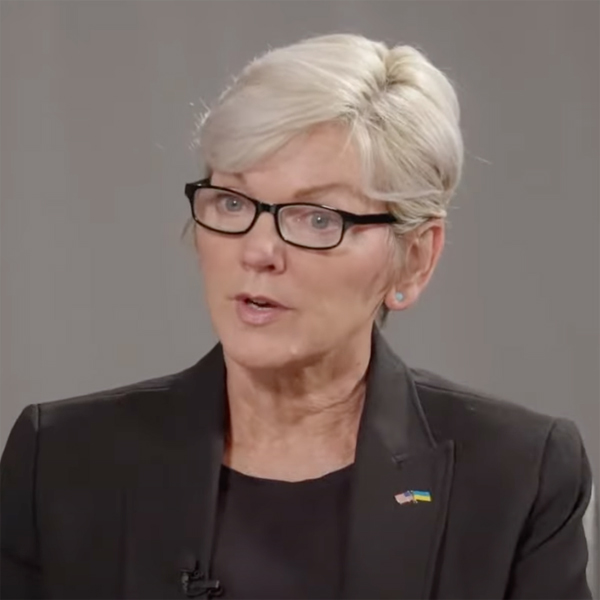 U.S. Secretary of Energy Jennifer Granholm | CSIS
U.S. Secretary of Energy Jennifer Granholm | CSIS
U.S. Secretary of Energy Jennifer Granholm on Thursday decried efforts by some Maine residents to stop a state-approved New England Clean Energy Connect (NECEC) power transmission corridor that would link Hydro Quebec to New England.
“Hydro Quebec wants to make sure that they are able to deliver … hydropower, and a state votes against it, and that state is a critical state to be able to make that connection to the Northeast. It’s extremely frustrating because it’s left in the hands of local interests,” Granholm said without mentioning the state by name.
“We should take local interests into account, but sometimes those local interests are funded by bigger interests that don’t have necessarily the big goal of getting to 100% clean electricity,” she added in a reference to utility funding of a successful grassroots referendum drive to block the construction of an already-approved transmission line through Maine delivering Canadian hydro power to Massachusetts.
Granholm’s remarks came during an energy policy discussion with Canadian Minister of Natural Resources Jonathan Wilkinson and sponsored by the D.C.-based Center for Strategic and International Studies.
The comments also came just two days after the Maine Supreme Court heard arguments in the appeal of a lower court decision to vacate a 1-mile lease of public land for the project, halting construction of the entire corridor. (See Maine Supreme Court Hears Entangling Arguments in NECEC Appeals.)
The fight over the transmission corridor is an early warning of battles to come as the Biden administration backs utility efforts to build new transmission carrying renewable power to demand centers — key to its goal to sharply reduce power plant carbon emissions by moving to wind, solar and other renewable generating technologies.
“The barriers have always been on deployment of electricity. It’s always about the grid. And it’s always about the local NIMBY permitting challenges,” Granholm added.
She said the administration does have a new tool, a provision in the bipartisan Infrastructure Investment and Jobs Act that “allows the DOE to take a position of offtake so that those builders of transmission lines can feel some comfort that they are not going to be left holding the bag.” (See DOE Seeks Input on Tx Loan, ‘Anchor Tenant’ Programs.)
“Then we get paid back as they fill up the rest of the line,” she explained in a reference to other off takers of power flowing through a new transmission line.
“It’s a revolving fund,” she explained of the $2.5 billion allocated in the legislation to help jump start new transmission projects. “It’s a new mechanism that we’ve never used before … to ensure that we can actually get transmission [projects] going.”
“The opportunity is just so powerful to have a North American powerhouse … of an alignment on clean energy deployment and technology development,” Granholm said.
“I raised that because I think that all of our desire for peace in the world, so much of that can rest upon our movement to clean energy.
“If we are successful in converting our energy to clean, [we] can create energy security, not just for our individual countries, but around the world. We will not be under the thumb of petro-dictators. It could be a great peace plan, and that I think is a great aspiration.”
Wilkinson, in Washington to discuss energy security and climate change, said the two issues are “ultimately linked.”
“You often hear in Canada, and I assume it’s probably the case in the United States, the two polar kinds of views on this, which are: energy security has come to the fore [because] it’s so important [and] we should forget about climate change.
“On the other hand, you have voices who say climate change is an existential threat. It’s so important that you should essentially forget about energy security, at least as it relates to helping our friends and in Europe.
“There is a way for us to think about these things as being complementary, that we can work towards addressing the short-term energy security issues that have come out of Russia, that are arising from shifts in geopolitics generally,” he said.



